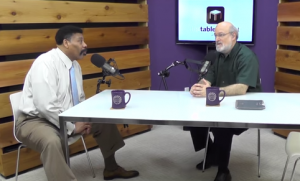UPDATED: Dolezal as a white woman sued Howard University for racial discrimination. See video on that point at the end of this post. Video of her interview with Matt Lauer is also at the end of the post.
Rachel Dolezal has become an object of media and public attention because she has identified as a black woman for years even though both of her biological parents are white. She recently was outed by her parents but told Matt Lauer on the Today Show today: “I identify as black.”
In May 2008, I asked Ken Zucker, a psychologist best known for his work in gender dysphoria, for permission to reprint a post from the SEXNET listserv, an internet group of people who research and write about sexuality research. The post addressed the question: are ethnic identity conflict and gender identity conflict similar in any meaningful ways? Although Zucker’s illustrations primarily examine the case of darker skinned people wanting to pass as white, his post addresses some of the current issues raised by Rachel Dolezal’s public statements about her ethnic identity.
Dr. Zucker:
In the interview I had with the NPR journalist, Alix Spiegel, I posed the question: How would a clinician respond to a young child (in this instance a Black youngster) who presented with the wish to be White? I had already sent Ms. Spiegel an essay that I published in 2006 in which I had presented this analogy and she told me that she was intrigued by the argument.
In this post, I list some references that I have accumulated over the years that discusses issues of ethnic identity conflict in children and adults. In the 2006 paper, I was particularly influenced, rightly or wrongly, by an essay Brody (1963) wrote many years ago. I think it is worth reading. Thus, I did not invent the analogy out of thin air. I had been influenced by three things: first, I was aware of this literature on ethnic identity conflict and I thought it had some lessons in it; second, I had observed, over the years, that some kids that I have seen in my clinic who had a biracial ethnic background also sometimes struggled with that (e.g., wanting to be White, like their mother, and not wanting to be Black or non-white Hispanic, like their father) or wanting to be an American (and not a Canadian) or wanting to be a dog (and not a human). I have thought about these desires as, perhaps, an indication of a more general identity confusion. Third, I was influenced by a remark Richard Pleak made in a 1999 essay, in which he wrote that the notion that “attempting to change children’s gender identity for [the purpose of reducing social ostracism] seems as ethically repellant as bleaching black children’s skin in order to improve their social life among white children” (p. 14). I thought about his argument and decided that it could be flipped. Thus, in the 2006 essay, I wrote:
This is an interesting argument, but I believe that there are a number of problems with the analysis. I am not aware of any contemporary clinician who would advocate “bleaching” for a Black child (or adult) who requests it. Indeed, there is a clinical and sociological literature that considers the cultural context of the “bleaching syndrome” vis-a-vis racism and prejudice (see, e.g., Hall, 1992, 1995). Interestingly, there is an older clinical literature on young Black children who want to be White (Brody, 1963)–what might be termed “ethnic identity disorder” and there are, in my view, clear parallels to GID. Brody’s analysis led him to conclude that the proximal etiology was in the mother’s “deliberate but unwitting indoctrination” of racial identity conflict in her son because of her own negative experiences as a Black person. Presumably, the treatment goal would not be to endorse the Black child’s wish to be White, but rather to treat the underlying factors that have led the child to believe that his life would be better as a White person. As an aside, there is also a clinical literature on the relation between distorted ethnic identity (e.g., a Black person’s claim that he was actually born White, but then transformed) and psychosis (see Bhugra, 2001; Levy, Jones, & Olin, 1992). Of course, in this situation, the treatment is aimed at targeting the underlying psychosis and not the symptom.
The ethnic identity literature leads to a fundamental question about the psychosocial causes of GID, which Langer and Martin do not really address. In fact, they appear to endorse implicitly what I would characterize as “liberal essentialism,” i.e., that children with GID are “born that way” and should simply be left alone. Just like Brody was interested in understanding the psychological, social, and cultural factors that led his Black child patients to desire to be White, one can, along the same lines, seek to understand the psychological, social, and cultural factors that lead boys to want to be girls and girls to want to be boys. Many contemporary clinicians have argued that GID in children is the result, at least in part, of psychodynamic and psychosocial mechanisms, which lead to an analogous fantasy solution: that becoming a member of the other sex would somehow resolve internalized distress (e.g., Coates, Friedman, & Wolfe, 1991; Coates & Person, 1985; Coates & Wolfe, 1995). Of course, Langer and Martin may disagree with these formulations, but they should address them, critique them, and explain why they think they are incorrect. I would argue that it is as legitimate to want to make youngsters comfortable with their gender identity (to make it correspond to the physical reality of their biological sex) as it is to make youngsters comfortable with their ethnic identity (to make it correspond to the physical reality of the color of their skin).
On this point, however, I take a decidedly developmental perspective. If the primary goal of treatment is to alleviate the suffering of the individual, there are now a variety of data sets that suggest that persistent gender dysphoria, at least when it continues into adolescence, is unlikely to be alleviated in the majority of cases by psychological means, and thus is likely best treated by hormonal and physical contra-sex interventions, particularly after a period of living in the cross-gender role indicates that this will result in the best adaptation for the adolescent male or female (e.g., Cohen-Kettenis & van Goozen, 1997; Smith, van Goozen, & Cohen-Kettenis, 2001; Zucker, 2006). In childhood, however, the evidence suggests that there is a much greater plasticity in outcome (see Zucker, 2005a). As a result, many clinicians, and I am one of them, take the position that a trial of psychological treatment, including individual therapy and parent counseling, is warranted (for a review of various intervention approaches, see Zucker, 2001). To return briefly to the ethnic identity disorder comparison, I would speculate that one might find similar results, i.e., that it would be relatively easier to resolve ethnic identity dissatisfaction in children than it would be in adolescents (or adults). Although I am not aware of any available data to test this conjecture, I think of Michael Jackson’s progressively “white” appearance as an example of the narrowing of plasticity in adulthood.
Two caveats: first, the literature on psychosis and ethnic identity conflict that is cited in no way was meant to imply that transgendered people are psychotic; the comparison is to a very small number of people who have “delusions” of gender change in which the primary diagnosis is Schizophrenia. This was first noted in the DSM-III and remains in the DSM-IV text description; second, I can criticize my own argument along these lines: “Well, this may all be true, but surely there is no evidence for a biological factor that would cause a Black person to want to be White, but maybe there is a biological factor or set of biological factors that either predispose or cause a person with the phenotype of one sex to feel like they are of the other sex (gender).” And to that I would say fair enough.
Bhugra, D. (2001). Ideas of distorted ethnic identity in 43 cases of psychosis. International Journal of Social Psychiatry, 47, 1-7.
Brody, E. B. (1963). Color and identity conflict in young boys: Observations of Negro mothers and sons in urban Baltimore. Psychiatry, 26, 188-201.
Brunsma, D. L., & Rockquemore, K. A. (2001). The new color complex: Appearances and biracial identity. Identity: An International Journal of Theory and Research, 1, 225-246.
Fuller, T. (2006, May 14). A vision of pale beauty carries risks for Asia’s women. New York Times.
Goodman, M. E. (1952). Race awareness in young children. Cambridge: Addison-Wesley.
Hall, R. (1992). Bias among African-Americans regarding skin color: Implications for social work practice. Research on Social Work Practice, 2, 479-486.
Hall, R. (1995). The bleaching syndrome: African Americans’ response to cultural domination vis-B-vis skin color. Journal of Black Studies, 26, 172-184.
Lauerma, H. (1996). Distortion of racial identity in schizophrenia. Nordic Journal of Psychiatry, 50, 71-72.
Levy, A. S., Jones, R. M., & Olin, C. H. (1992). Distortion of racial identity and psychosis [Letter]. American Journal of Psychiatry, 149, 845.
Mann, M. A. (2006). The formation and development of individual and ethnic identity: Insights from psychiatry and psychoanalytic theory. American Journal of Psychoanalysis, 66, 211-224.
Russell, K., Wilson, M., & Hall, R. (1992). The color complex: The politics of skin color among African Americans. New York: Harcourt Brace Jovanovich.
Sanders Thompson, V. L. (2001). The complexity of African American racial identification. Journal of Black Studies, 32, 155-165.
Schneck, J. M. (1977). Trichotillomania and racial identity [Letter to the Editor]. Diseases of the Nervous System, 38, 219.
Stephan, C. W., & Stephan, W. G. (2000). The measurement of racial and ethnic identity. International Journal of Intercultural Relations, 24, 541-552.
Tate, C., & Audette, D. (2001). Theory and research on ‘race’ as a natural kind variable in psychology. Theory & Psychology, 11, 495-520.
Ken Zucker
Zucker’s provocative post is timely now. Rachel Dolezal’s and Caitlyn Jenner’s stories have caused people to question and examine categories which seem to most people to be discreet categories. One is either a part of one group or another. However, gender is increasingly being questioned by scientists and activists alike. Race and ethnicity has been seen as more fluid but for different reasons than are posed by Dolezal. Can a person simply declare an ethnicity based on psychological affinity for that ethnicity? Is Zucker correct to wonder about an analogy between ethnic identity disorder and gender identity disorder?
Regarding Dolezal, it will be interesting to see how this plays out. Will the decreasing plasticity Zucker describes demonstrate itself here. She certainly has taken a very public step by declaring herself to be black. Social psychological research tells us that it may be harder for her to walk back from that now that she has made a public declaration. If she does revert to a “white identity” then I will be interested in the social and psychological factors which could bring that about.
ABC News has the story of Dolezal’s discrimination suit.
ABC US News | World News
Interview with Matt Lauer (embed not working, click here for video)
 As has been widely reported, White House Chief of Staff John Kelly last night on the Laura Ingraham Show said Robert E. Lee was an honorable man and the Civil War was fought because the North and South couldn’t compromise. Kelly was brought into the White House to keep Trump from stepping on verbal landmines. However, he has stepped on a few of his own in recent days.
As has been widely reported, White House Chief of Staff John Kelly last night on the Laura Ingraham Show said Robert E. Lee was an honorable man and the Civil War was fought because the North and South couldn’t compromise. Kelly was brought into the White House to keep Trump from stepping on verbal landmines. However, he has stepped on a few of his own in recent days.
